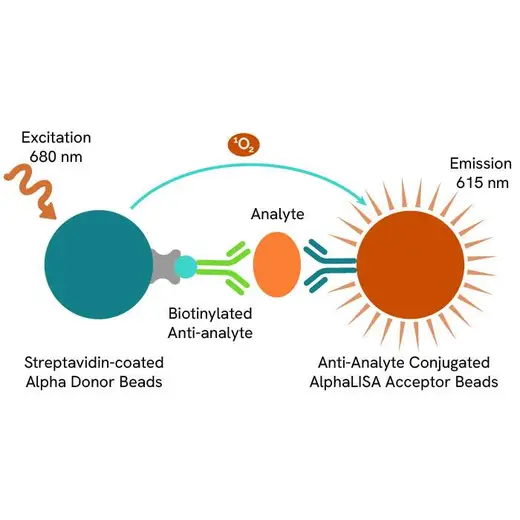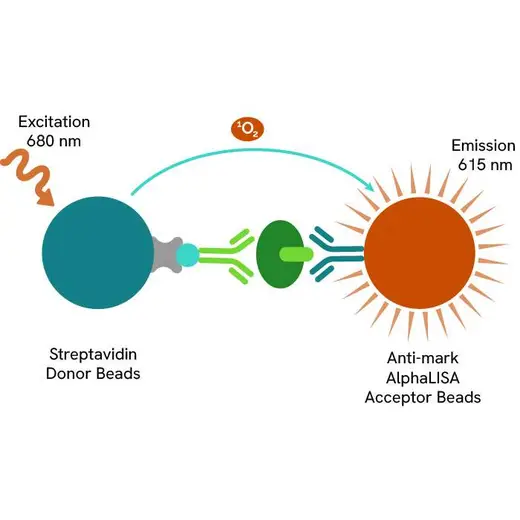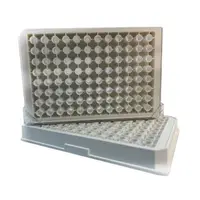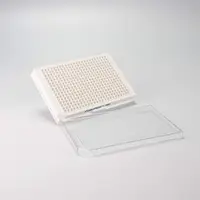
AlphaLISA Di/Mono-methylated-Histone H3 Lysine 27 (H3K27me2-1) Detection Kit, 100 Assay Points










This kit is designed for the detection of di/mono-methylated Histone H3 Lysine 27 (H3K27me2-1) in cell lysates using a homogeneous AlphaLISA assay (no wash steps).
For research use only. Not for use in diagnostic procedures. All products to be used in accordance with applicable laws and regulations including without limitation, consumption & disposal requirements under European REACH regulations (EC 1907/2006).
Product information
Overview
The AlphaLISA® Epigenetic Cellular Detection Kits enable rapid and direct detection of endogenous modification of epigenetic marks on histone H3. These no wash, all-in-one-well assays are optimized for simplicity and throughput.
- Simple assay protocol amenable to automation, eliminating tedious ELISAs and Westerns
- Suitable for endogenous and recombinant cell lines, providing the flexibility to work with relevant cell models
- Ideal for HTS protocols with demonstrated Z’ factors greater than 0.6
The AlphaLISA detection of epigenetic marks in cellular extracts is performed as follows: cell cultured in the presence of compounds are lysed with the Cell-Histone Lysis buffer. Histones are then extracted from the nucleosomes by the addition of the Cell-Histone Extraction buffer. AlphaLISA anti-mark Acceptor beads and Biotinylated anti-Histone H3 (C-terminus) antibodies are then added for the capture of histone proteins carrying the mark of interest. After incubation, Streptavidin Donor beads are added for the capture of the biotinylated antibody. In the presence of histone proteins bearing the mark of interest, the beads come into proximity. Excitation of the Donor beads provokes the release of singlet oxygen molecules that trigger a cascade of energy transfer reactions in the Acceptor beads, resulting in a sharp peak of light emission at 615 nm.
Specifications
| Application |
Epigenetics
|
|---|---|
| Assay Points |
100
|
| Assay Target Class |
Histone
|
| Automation Compatible |
Yes
|
| Brand |
AlphaLISA
|
| Detection Method |
Alpha
|
| Experimental Type |
In vitro
|
| Format |
Microplates
|
| Molecular Modification |
Methylation
|
| One Unit Contains |
100.0 assay points
|
| Quantity in a Package Amount |
100.0 Units
|
| Shipping Conditions |
Shipped in Blue Ice
|
| Unit Size |
100 Assay Points
|
Video gallery



SDS, COAs, Manuals and more
Are you looking for technical documents for this product. We have housed them in a dedicated section., click on the links below to explore.


How can we help you?
We are here to answer your questions.
































